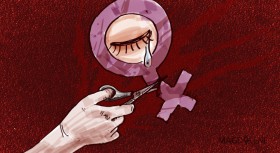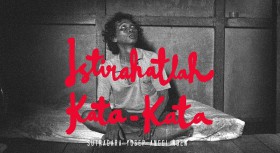Jane Reyes is an immigrant from the Philippines searching for a better future for herself and her daughter in the United States—her own piece of the proverbial American Dream pie—when she runs across the opportunity of becoming a “Host” at Golden Oaks—also known as “The Farm”. Lured in by the juicy promise of staying at a luxurious retreat providing a seemingly endless list of lavish facilities and being paid to enjoy them, Jane ends up being one of the lucky people carrying babies of various bigwigs and billionaire-kajillionaires. In order to earn her paycheck, however, she has to stay at the remote resort throughout the duration of the pregnancy, away from her own life outside of Golden Oaks—a rule that proves to be challenging as worries about her own family loom over her like dark, stormy clouds.
Wrapped in an exciting, fast-paced, and multi-faceted story told from the points of view of several women of varying roles and socioeconomic backgrounds, Joanne Ramos tells a story that covers a broad range of issues from the motherhood, surrogacy, commodification of women’s bodies, socioeconomic disparity, race, privilege, to capitalism.
Throughout the book, Jane’s life story is interwoven with the stories of other diverse characters such as Ate, Jane’s elderly Filipina cousin who is a highly-coveted baby nurse for the rich; Mae, Jane’s Chinese-American supervisor at Golden Oaks and a successful businesswoman; and Reagan, her fellow Host turned friend, a naïve Caucasian Duke University graduate who is still figuring out her life and who longs to be free from her father’s dictates.
Through her characters, Ramos emphasizes the cruel unfairness of life: that success in life is not the end result of mere hard work, but also luck. Fortunate people enjoy the privilege coming from things out of their control: their race, their sex, the kind of family they were born into. The same applies to less fortunate people, who seem to unluckily suffer misfortune after misfortune. There are also the people in between, people who are a minority or disenfranchised in one aspect, but privileged in another.
These types of people are all found in our society and are quite realistically depicted in the book. The constantly changing points of view presented in the book – switching from chapter to chapter between Jane, Ate, Mae, and Reagan – provides an eye-opening journey as we get to see how these characters interact with one another, how their socioeconomic status, race, and upbringing bleed into their personalities and ways of thinking.
The book also dives into what motherhood entails and the different kinds of motherhood in today’s society. From rich and privileged mothers who cherry-pick their motherly responsibilities – only wanting to look after their children when it is easy and handing them off to their nannies the minute the children start being “difficult” – and become jealous when their children prefer the company of said nannies; to mothers who are forced to leave their children at home – sometimes even halfway across the world, a common occurrence among immigrants – to work and provide for their children financially. There are also career-driven women who have to choose between advancing their careers or having children.
Tied to this issue of motherhood is the notion of family relations and how they differ from one culture to another. For example, Americans see no point in taking care of their parents when they are old, while Filipinos pride themselves on taking care of their elderly folks, looking down at Americans for doing the opposite.
Through this story, Ramos manages to paint the chilling reality of what would happen if women’s bodies were commodified through surrogacy, something that is made even more terrifying by its very possible realization in the world given the increasingly advanced technology and resources made available to us.
The phrase “money is the root of all evil” comes to mind when we are shown the inner workings of Golden Oaks, not through depictions of blatant torture, but through the subtle malice that lies in the kind words and false promises given to the Hosts and the gentle manipulation and gaslighting of women in exchange for their obedience and compliance. Every single thing that exists within Golden Oaks exists with one end goal in mind: money, money, and more money.
Rich people think they are untouchable and what is morally right or wrong is no longer important, as long as there is money to be gained. Pregnancy is no longer a sacred and magical thing. Babies are seen as products and Golden Oaks is the best baby factory there is. Disabled babies are merely factory defects, a miscalculation or an oversight in analyzing risk factors. The decision on whether to keep or abort a defective baby is never about the mother or the baby, but about bringing in the biggest revenue for the company.
Ramos tells a dystopian story that is terrifyingly realistic and Golden Oaks, the luxurious surrogacy center producing babies for the wealthy and powerful, becomes a fictional concept one does not find hard to imagine turning into a reality. All in all, “The Farm” by Joanne Ramos promises an imaginary yet horrifyingly realistic world of commodified surrogacy, with an undercurrent of subtle horror that creeps up on you.







Comments